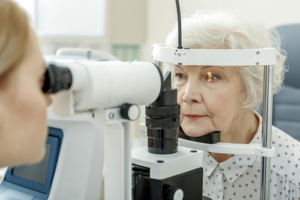8 Tips for Your Most Relaxing Cataract Surgery Recovery
Are you wondering if you may need to have cataract surgery? Cataracts occur when the natural lens of the eye becomes cloudy, making it harder to see and perform everyday activities like reading, cooking, and driving.
Over time, having cataracts makes your vision blurry and worsens it. The only way to effectively treat cataracts is to have cataract surgery.
Cataract surgery is one of the most common and safe medical procedures. By having the procedure, you’ll have your clear vision restored while regaining your independence.
Thanks to a quick recovery time, you’ll be able to get back to the things you love doing before you know it, this time with clearer, crisp vision. Keep reading for 8 tips to follow to ensure you’ll have your most relaxing cataract surgery recovery!
1. Arrange for Someone to Take You Home
Before you do anything, make sure you have a friend or family member who can drive you home after cataract surgery. You will not be allowed to drive yourself home after the procedure due to the anesthesia used.
Your vision may also be slightly blurry, making it unsafe to operate a vehicle. It can take a few days for your sight to stabilize, so you’ll need to wait until your vision clears before you can drive again.
Most patients don’t have to wait very long and may be able to drive following their first follow-up appointment, but this can vary depending on the person. Once you get home, you may want to take a nap or rest for a few hours.
Keep things low-key for the day you get home, as rest is the best thing for your eyes as you begin the recovery process.
2. Prep a Few Meals in Advance

When you get home from having cataract surgery, wouldn’t it be nice to have your dinner already made? Do yourself a favor and prep a few simple meals in advance.
At the very least, you won’t want to cook the day you have your procedure, so make a casserole that you can have on hand or something easy you can warm up.
3. Avoid Strenuous Activities that Involve Bending Over
If you’ve been looking forward to some time to yourself, recovering from cataract surgery will give you a day or two to relax. One thing that you need to avoid is bending over and taking part in anything strenuous.
If you have a workout regimen, ask your eye doctor when you can get back to this. Take it easy and avoid bending over, lifting anything heavy, or doing things that would apply pressure to your eye for a few days.
4. Be Careful Not to Get Water in Your Eyes
As you recover after cataract surgery, you need to be careful around water. You may not realize it, but all water, including tap water, can contain bacteria.
Your eyes are more prone to infections as they heal. Do your best not to get any water in your eyes when you’re showering. Also, you’ll need to avoid swimming in any bodies of water for at least a couple of weeks after having cataracts removed.
5. Relax If You Need to

Recovering after any surgical procedure can make you tired. If you feel more fatigued or spent than you usually do, this is normal.
It may take a day or two before you start feeling like you can do many of your favorite activities again. Take things at your own pace, and if you do feel tired, don’t feel like you can’t rest or slow down. You shouldn’t feel like you need to be stuck in bed, but relaxing is always a plus after having any surgery.
6. Protect Your Eyes
Protecting your eyes is always important, but it becomes more so after having cataract surgery. They can become more easily irritated by the wind, sun, grime, and dust.

Whenever you’re outside, make sure you’re wearing sunglasses that provide 100% UVA and UVB protection from the sun. Your eyes may feel more sensitive to light and the sun the first day or two after having cataract surgery, but this should dissipate after a few days.
7. Don’t Rub Your Eyes
Although it may be tempting, avoid rubbing your eyes as you recover from cataract surgery. Your eyes may feel itchy, irritated, or gritty as they heal.
If they cause you discomfort, rubbing them will only lead to more problems. Instead of rubbing your eyes, try using artificial tears or eye drops to restore any moisture your eyes may be lacking.
You can also try placing a cool compress or clean washcloth over your eyes to provide some much-needed relief. Be aware that if any feelings of itchiness or discomfort are accompanied by eye pain, this could be a sign of a complication or an eye infection.
Let your eye doctor know as soon as possible so you can get the treatment you need.
8. Attend All Follow-Up Appointments

A necessary component to ensure the best results after cataract surgery is attending all follow-up appointments with your eye doctor. Your first follow-up appointment will take place the day after you have your cataract removed to ensure you’re healing as you should.
You’ll then have subsequent follow-up visits with your eye doctors in the months after the procedure. These appointments are the perfect time to ask any questions you may have, like when you can drive again or if your vision isn’t where you think it should be.
Are you uncertain if it’s time to have cataract surgery or unsure if you may have cataracts? Schedule your cataract consultation at Eye Consultants of North Dakota in Fargo, ND, now!



